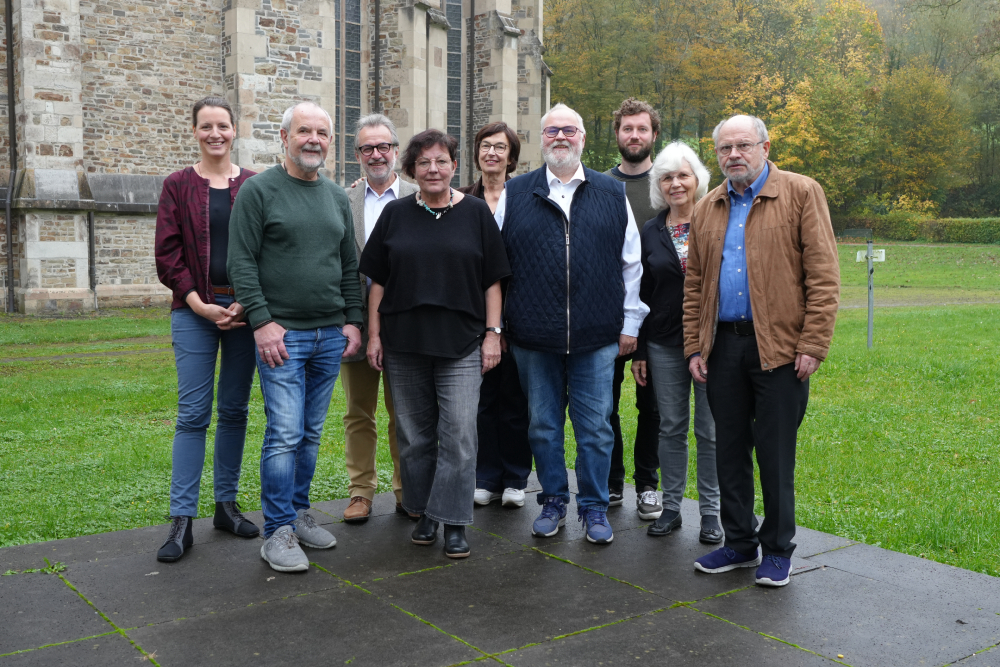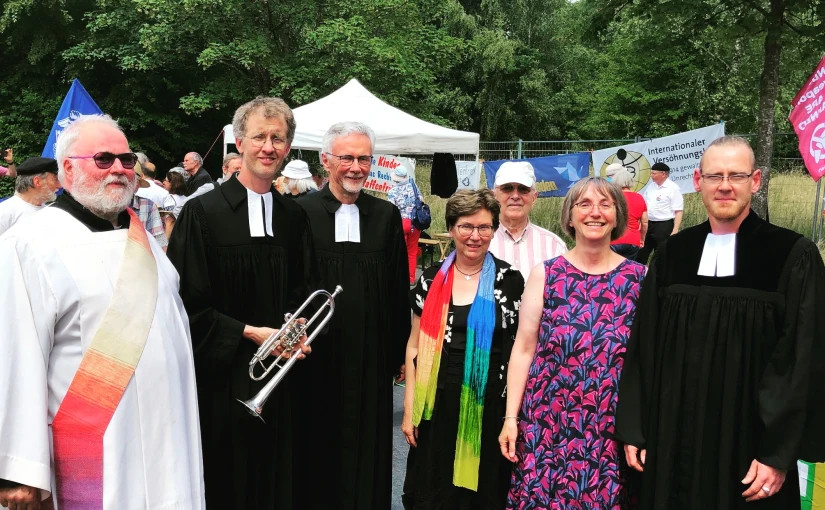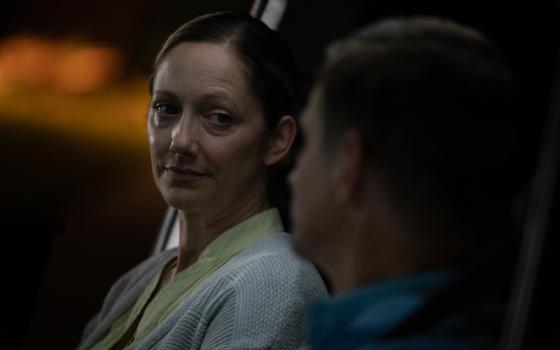
The Pax Christi Germany executive committee knows the group’s future depends on recruiting younger generations. The group met to strategize at last year's Pax Christi Germany conference in Altenberg, Germany. (Courtesy of Pax Christi Germany)
Growing up in Germany after World War II, HoPe Raguth remembers walking the grounds of the Auschwitz concentration camp trying to fathom how the generations of his father and grandfather stood idly by such mass atrocity.
"I did not want to be guilty again for violence and crimes against humanity on the part of my compatriots," Raguth, now 70, said. "I decided to be a pacifist."
Raguth, a deacon of the Diocese of Trier, is an executive board member of the German section of Pax Christi, the international Catholic peace movement that defends human rights and focuses on ending wars across the globe. The organization, founded in 1945 to unite French and German citizens as World War II ended, now reaches more than 50 countries.
Today, the movement is at a standstill, even with wars raging in Ukraine, Gaza and Sudan. While Raguth, a Pax Christi member for 40 years, decided in his youth to oppose warfare and the spread of nuclear weapons, the Catholic peace movement — and the broader German peace movement — struggles to recruit younger generations.

Deacon HoPe Raguth (left) gathers with members of Pax Christi Germany at a church action day in Büchel, Germany, near his diocese in Trier. (Courtesy of Pax Christi Germany)
Pax Christi has around 5,000 members in Germany, said Martin Pilgram, a member of Pax Christi's International Board.
In comparison, the German Bishops' Conference reported March 27 that the number of Catholics in the country tallied 19,769,237 members. However, this was the first time in modern German history that its membership dropped below 20 million.
The struggle arrived at a pivotal moment for Germany's role in defending Europe. As Russia's attack on Ukraine continues, Friedrich Merz, Germany's chancellor-in-waiting, led a successful vote last month in parliament that could unlock around 600 billion euros in military spending, according to CNN.
Pilgram, who leads Pax Christi's diocese in Munich, said the shortfall of youth involvement is not without a lack of trying.
The 70-year-old said the movement tried to align with environmental advocacy groups that engage younger groups, including students. Pilgram is a member of the Greens, a German political party aligned with environmental causes.
While finding common goals and supportive groups have been promising, another obstacle cropped up.
Advertisement
"People are going away from the churches," Pilgram said. "So that is the second problem."
In May, Pax Christi and other groups in Germany will meet in Hanover for an ecumenical gathering of Christian peace groups. The gathering will aim to redefine the peace movement's messaging as Germany embraces militarization and secularism, said the Rev. Thomas-Dietrich Lehmann, a Lutheran pastor and the gathering's co-organizer.
Lehmann, who is 69, was ordained in 1988 and served in West Berlin.
During Germany's reunification in the '90s, he heard of Jesuits working in a nearby neighborhood, preaching the practices of Paul the Apostle. He became enamored with this gospel-style "tent making," or taking a traditional job in your community while modeling Christianity through behavior, actions and, in his case, activism. He promptly left his congregation and became a taxi driver when he joined the Jesuits in their cause.
Three decades later, he still meets with his Jesuit counterparts, including some who spread the mission beyond religion. One Berlin group, associated with the International Campaign to Abolish Nuclear Weapons, organizes a monthly vigil outside Brandenburg Gate.

(From left to right) ICAN members Iris Buehrmann, Johanna Erdmann and Barbara Fuchs stand in front of Brandenburg Gate on March 15, protesting against an increase in Germany’s defense spending. (Matthew Royer)
The group supported Catholic Worker Susan Crane, an 81-year-old American grandmother imprisoned in Koblenz, Germany, for breaking into Büchel Air Force Base to protest the stationing of American nuclear weapons in Germany. Crane was released from prison in January.
However, the group also fails to tap into younger crowds.
"It's depressing," said 83-year-old Iris Buehrmann in an interview during a protest at the Brandenburg Gate against German militarization ahead of parliament's vote. "They are active in the anti-fascist movement, but I don't understand why these people are not interested in the anti-war movement."
Buehrmann attended the protest with her International Campaign to Abolish Nuclear Weapons colleagues Barbara Fuchs* and Johanna Erdmann, a Catholic who works with Lehmann.
Buehrmann said she sees hope in the results of Germany's election last month. She pointed out that a significant organizer of protest actions against war is the political party Die Linke (The Left). Die Linke finished fifth in the election, attracting voters aged 18 to 24. The party finished first in that age range with 25% of the vote, an increase of 17% from the 2021 election.
Pilgram said recruiting efforts must come from these actions, whether or not they identify with the church.
"If you show what you are doing, people think, 'Why are you doing [that]?' " he said. "That is more or less the only way to move forward and to bring people to your movement.
"Maybe to the church as well."
* This article has been updated to correct an editing error that dropped Fuchs' name.




